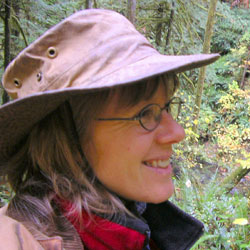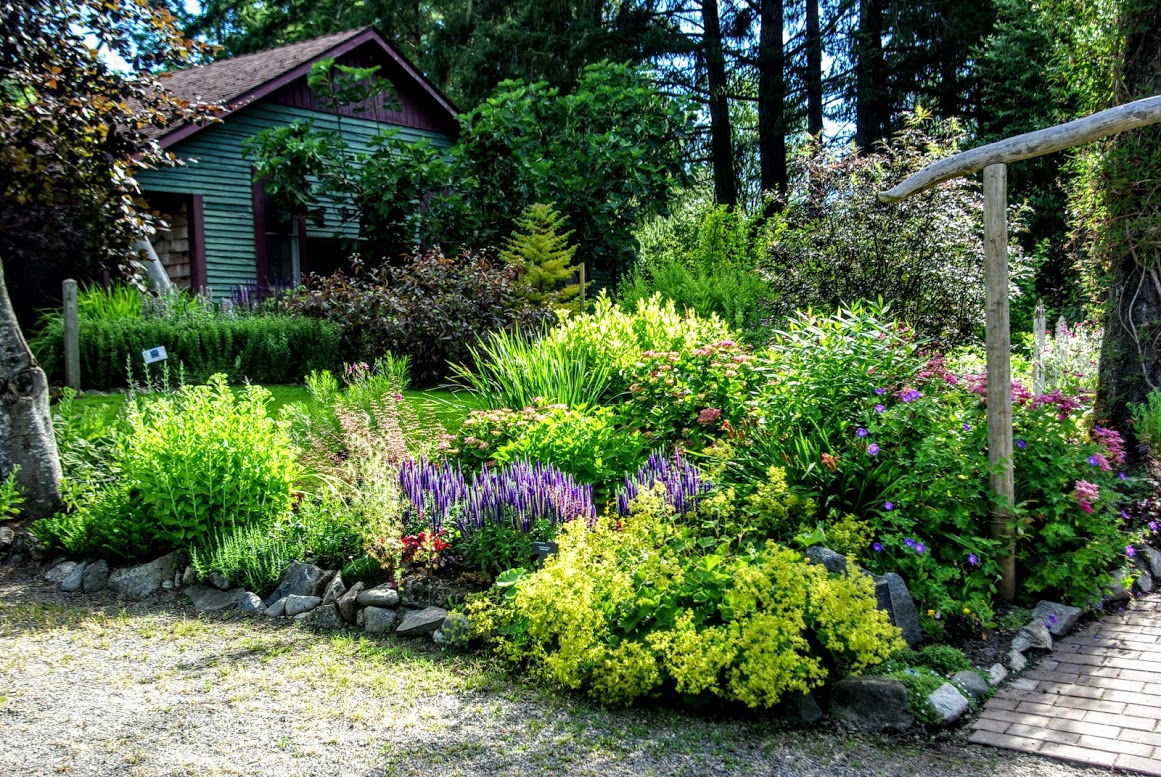Organic Land Care Principles
by Maddy Pauls
(Part one of our two part blog posts on Organic Land Care - Find Part Two Here)
 We had the pleasure of having three classes on organic land care with Christina Nikolic from The Organic Gardener's Pantry. One of the biggest takeaways from her classes was three easy steps for organic gardening. These three steps can also be called the three M's: Micro-organisms, Mulch and Moisture. By keeping these three steps in mind you can maintain or even improve the quality of your soil and therefore the quality of your plants.
We had the pleasure of having three classes on organic land care with Christina Nikolic from The Organic Gardener's Pantry. One of the biggest takeaways from her classes was three easy steps for organic gardening. These three steps can also be called the three M's: Micro-organisms, Mulch and Moisture. By keeping these three steps in mind you can maintain or even improve the quality of your soil and therefore the quality of your plants.
Microorganisms (and macro-organisms) include things such as beneficial bacteria, fungi, and protozoa, as well as larger organisms including arthropods, nematodes and earthworms. These organisms are crucial to soil and plant health as they decompose organic matter, provide nutrients to plants and improve soil structure. Some mainstream practices, such as synthetic fertilizer use, can harm these organisms and therefore decrease the overall health of the soil and plants. If you are worried that your soil is lacking biota, never fear! There are many ways of increasing your soil biota population including adding compost, doing a soil transplant from one area with a healthy biota population to your soil, adding compost and soil tea which are full of aerobic microorganisms, as well as inoculants for nitrogen fixing bacteria and mycorrhizal fungi.
Mulch is another very important aspect of organic gardening. By mulching your garden you can provide nutrients and organic matter for plants and microorganisms. Mulching also helps with water infiltration and retention, decreasing runoff and erosion, improves the structure of your soil as well as the ability to bind up toxins and contaminants (and the list goes on). There are many different types of mulch as well as different considerations with each. Leaf mold is commonly used at the HCP for mulching. It is a mixture of leaves that have been slightly decomposed. Although a bit stinky at first, the smell quickly subsides, and your biota will be happy. Mulching with leaves can also be done by adding leaves from your yard into your garden beds while doing fall cleanup. Compost is another popular mulching material. This will provide some nutrients as well as many microorganisms into your soil. Straw can also be used, however most straw is treated with pesticides, so use with caution. Manure is commonly used for mulching as well, but it should be composted for at least a year before applying to the garden. My new personal favourite is mulching your garden with the weeds that grow in it! Although this isn't a method for those who like a tidy garden, it will replenish the same nutrients back into the soil that those weeds used to grow. For weeds with a fibrous root system you can “Rip and Flip”; rip out the weed then flip it over onto the soil surface. For weeds with rhizomatous or taproot systems you can “Chop and Drop” by chopping off the foliage and dropping it back into the garden bed. This method will by no means eradicate the weeds from your garden, however, they will decompose adding organic matter back into the soil.
The last of the 3 M's is moisture. Water is needed by both the plants as well as the soil biota. There is a fine line of how much moisture is needed. Not enough moisture and your plants and biota will struggle. However, too much moisture will cause runoff, leeching, drowned your soil organisms and potentially create an anaerobic environment perfect for harmful biota. As we are entering the driest time of the year, it is important to keep the soil from drying out completely and provide some water to all of the organisms living above and below ground.
The 3 M's work together to create a wonderful home for your plants to sink their roots into. If you can do one thing for your garden, I would suggest mulching it regularly as mulch helps with retaining moisture and supporting/adding microorganisms. Thank you to Christina Nikolic for teaching us so much about organic land care! You can find many organic fertilizers, inoculants and more at The Organic Gardener's Pantry.



